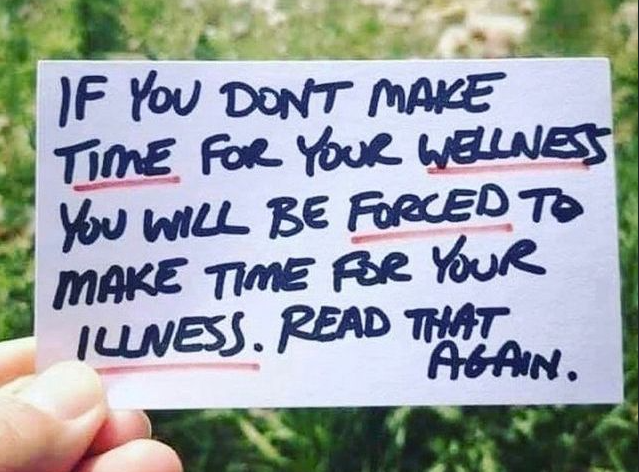|
Stress is a major factor in developing diseases and can harm us on a cellular level. Our bodies are designed to deal with stressors by going into “fight, flight or freeze” mode, which means that we either prepare to fight, freeze up or run away from the situation. All options trigger a physical response to a possibly life threatening situation. This response is helpful when your are being chased by a bear in the woods, however, this rarely is the case anymore in today’s world. Our threats are on an emotional and mental level but our bodies still react with the same adrenalin- pumping physical response. In order deal with the overflow of hormones, we need to develop strategies to calm the mind.
Yoga and meditation seem to be great ways in order to manage stress but they are not for everyone. Another great, inexpensive and non- time consuming option would be music. When we listen to music, a part of our limbic system called the hippocampus is activated which will trigger emotional responses. It will also help secrete hormones like serotonin, dopamine and norepinephrine, which will make you feel happy and elevate your mood and therefore decrease the production of stress hormones like adrenalin and cortisol. Even playing an instrument has positive effects on people. It can boost your motivation, keep your breath and heart rate in check and improve hand - eye coordination. Positive, up- beat music seems to have a great impact on people in terms of making them feel better and happy while sad music seems to assist in dealing with negative emotions more effectively such as after a break - up. Here's what you can do to tune in to your emotions: 1) Listen to up- beat music in your car/on the bus on your way to work 2) Dance for 5 min a day like no one is watching 3) Listen to calming music after work, right before you go to bed or during stressful situations 4) Play an instrument daily for 10 min, if you have one. If not, now is the time to finally start! 5) Sing or chant: join a choir, sing in the shower, try out karaoke or simply just sing along to your favourite song
0 Comments
Have you ever wondered why you are getting upset easily or why you need food right now when you realize that you feel hungry? Do you maybe even feel depressed, fatigued and low on energy?
If your answer is yes, the source of your problem could lie in the food you are eating. Processed, fried, refined foods and simple carbs lead to a rapid increase in blood sugar which forces the pancreas to produce insulin. This hormone will reduce the excess sugar from the blood by triggering cells to absorb it, most of the time causing blood sugar levels to drop too low. Since our bodies strive for homeostasis, meaning a steady state, the lack of sugar in the blood now triggers us to eat again; preferably simple, easy absorbable carbs and the cycle begins again. This process is called 'dysglycemia' and puts a lot stress on your body. To keep you up and going despite a low sugar level, hormones like adrenalin and cortisol are released which increase stress on your adrenals leaving you shaky, cranky, lightheaded, dizzy, anxious and hungry. Tips to prevent fluctuating blood sugar levels and improve your mood and health: 1) Eat whole, organic plant based foods 2) Eat regularly and do not skip meals 3) Start your day with a source of protein in form of quinoa, beans, avocados, eggs, yogurt, nuts and nut butters, seeds like hemp and chia. 4) Reduce caffeine 5) Avoid refined sugar, fried or packaged foods 6) Eat blood sugar stabilizing foods like home made bone broth, whole grains (black rice, steal cut oats) and leafy greens. 7) Exercise Our body has a peculiar way of making itself heard - often by making us uncomfortable. While humans in general are amazingly resilient, we do have our limits and our body will tell us when the limit is reached. At this point, it’s up to us to listen and to change something. If we don’t, we often pay the price for our negligence. You might have noticed that yourself after a stressful month at work: Somehow, you managed to power through, but the instant you are on holiday, you get sick.
After investigating a bit on why you fell ill, you suddenly realize that your body has tried to tell you to slow down a while ago. For example, you might have felt more tired than usual, or headaches and neck tension showed up. This was your body telling you that it's overworked and by sending you pain. Its intention was to protect you from further damage which long-term stress can cause. When we're stressed, our sympathetic nervous system works overtime, not giving our parasympathetic nervous system enough time to rest-and-digest and repair our body. Therefore, important jobs like digesting our food, detecting and killing harmful cells (that might cause cancer one day) are taking a backseat. Because the body is preoccupied during a stressful time, thinking your life is at stake, it simply isn’t able to prioritize protecting itself from viruses, bacteria and other harmful intruders. They can pretty much just walk into your system, undetected and make you sick. Taking a break and giving your body enough time to regenerate is most important. Creating awareness, that ‘pushing through’ only benefits us short-term, is an important step to minimizing long term-damage. But there are ways to help shift our body back into rest-and-digest mode: 1) Breathing exercises are a great way to lower levels of our most prominent stress hormone - cortisol. 2) Meditating can help shift the mind into a calmer state and lessen the effects of going through stressful situations. Essentially, anything that will help you breathe more slowly will send signals to your brain that you are safe and can be beneficial. One of my favourite breathing exercises is the 4-6 breathe: Breathe in for 4 seconds, breathe out for 6. If you want, you can even pause for a few seconds after each inhale and exhale. I aim for about 5 to 10 breath cycles and then check in with myself whether my heart rate has slowed down. Give it a try and tell me how you feel after ! |
About JessiHealth and Fitness have always played an important role in my life. Archives
August 2022
|


